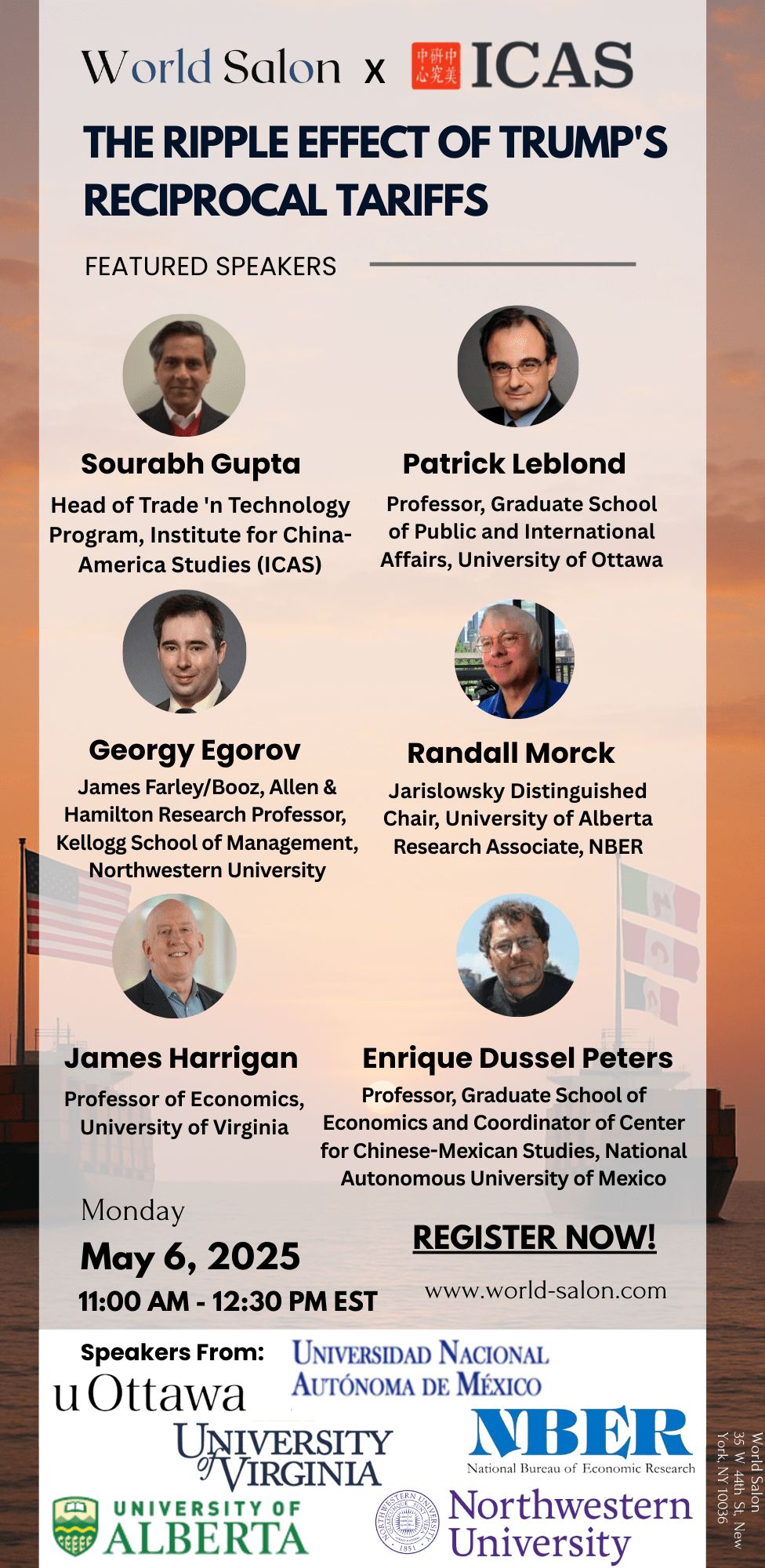Post Event Summary
On May 6, 2025, the Institute for China-America Studies (ICAS) hosted a virtual public event titled “The Ripple Effect of Trump’s Reciprocal Tariffs.” Moderated by Sourabh Gupta, Head of ICAS’ Trade ’n Technology program, the panel featured distinguished experts Prof. Patrick Leblond (University of Ottawa), Prof. Enrique Dussel Peters (National Autonomous University of Mexico), Prof. Randall Morck (University of Alberta), Prof. Georgy Egorov (Northwestern University), and Prof. James Harrigan (University of Virginia). The panelists examined the far-reaching impacts of President Trump’s new tariffs, focusing on the destabilization of North American trade integration, especially in the automotive sector. They highlighted the disruptive effects on investment and the significant uncertainty facing businesses, which are hesitant to commit resources amid fluctuating trade policies.
A major point of concern was the erosion of the rules-based international trading system. Panelists noted that President Trump’s tariff measures and use of national security justifications have severely weakened WTO norms, setting a precedent that may encourage other nations to adopt similar unilateral actions. The paralysis of the WTO’s dispute settlement mechanism further complicates this crisis, leaving middle-power economies like Canada and Mexico particularly vulnerable to coercive trade tactics. In response, these countries are actively pursuing trade diversification strategies and reinforcing partnerships beyond the U.S., including deeper economic ties with the European Union and Asia-Pacific countries.
Lastly, the experts reflected on broader geopolitical implications, notably the fragmentation of global supply chains and the trend toward deglobalization. They observed a growing movement toward “security-shoring,” where trade policies are intertwined with strategic and national security interests. The panel underscored that this reshaping of global economic dynamics compels middle powers to strategically navigate tensions between major economies like the U.S. and China. In conclusion, the discussion emphasized that while current tariff disruptions are driving nations to reassess trade relationships, coordinated multilateral actions by middle powers could help restore a stable, predictable, and fair international trade environment.


